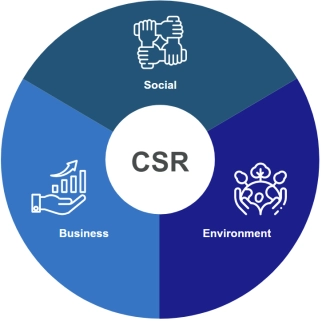1. How do CSR and ESG differ?
CSR has a more ethical approach to company’s responsibilities, going beyond just the business and extend to society. As part of their CSR responsibilities, companies are looking for developing long-term relationships with communities.
ESG is a performance framework that relies on voluntary or mandatory reporting standards. Investors use the non-financial information provided to make investment decisions or engage with the company to make progress on specific area of concerns such as the absence a decarbonisation plan.
2. Why is sustainability important for businesses?
- Meet regulatory requirements: Many jurisdictions including Australia have introduced mandatory regulations on climate reporting, equal salary, modern slavery, environmental and biodiversity protection…
- Attract investors: Investors are increasingly scrutinizing the sustainability performance of companies to reduce their risk exposure.
- Meet customers’ expectations: Individuals are looking for sustainability products that align with their values. Large corporations have often set sustainability goals are expect their suppliers to align with their goals (e.g., reducing carbon emissions).
- Attracting talents: Individuals are looking for value aligned employers and expect their employers to have sustainability commitments and take concrete actions.
3. What are the benefits in becoming sustainable?
For companies, the potential benefits in becoming more sustainable include:
- Better risks identification and mitigation (e.g., climate resilience actions)
- Identification of opportunities for cost reduction (e.g., energy efficiency measures)
- Stronger relationships with shareholders/stakeholders
- Increased profitability in the long term
- Enhanced reputation
- Last, this is good for the planet and people
4. What are the SDGs?
The UN crafted 17 sustainability-related goals that set a global benchmark for sustainability policies. The SDGs call for a global effort, both in developing and developed countries, to tackle important goad such as ending poverty, improving gender equality, developing sustainable cities, addressing climate change. Many companies in Australia have used the SDGs to report their sustainability actions.
How Forvis Mazars can help:
- Sustainability assessment (ESG health check)
- Developing ESG & sustainability strategy and due diligence
- Corporate governance services
- Human rights strategy
- Supply chain CSR diagnosis and sustainable purchasing strategy
- Develop policies and procedures to reduce gender pay gap
- Educate and develop policies on diversity and inclusion
This website uses cookies.
Some of these cookies are necessary, while others help us analyse our traffic, serve advertising and deliver customised experiences for you.
For more information on the cookies we use, please refer to our Privacy Policy.
This website cannot function properly without these cookies.
Analytical cookies help us enhance our website by collecting information on its usage.
We use marketing cookies to increase the relevancy of our advertising campaigns.







